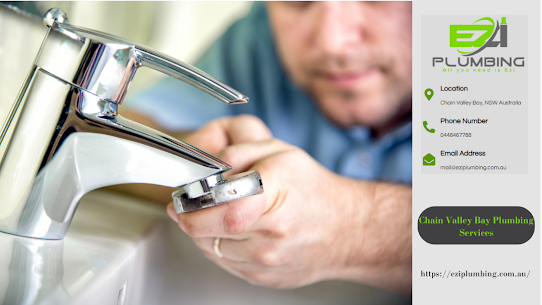Leaking taps might seem like a minor inconvenience, but they can lead to significant water waste if not addressed promptly. Beyond just being a nuisance, a leaking tap can increase your water bill and contribute to unnecessary water consumption. Understanding the causes of leaking taps and learning how to prevent them can save you money and help conserve our precious water resources. In this guide, we’ll explore practical tips and tricks for preventing water waste due to leaking taps, with a focus on maintaining your taps in top condition.
Understanding the Impact of Leaking Taps
Before diving into how to prevent leaks, let’s first grasp why a leaking tap is a bigger deal than it might seem. Even a small drip can waste a surprising amount of water over time. According to studies, a single dripping tap can waste up to 3,000 gallons of water annually. This not only increases your water bill but also puts a strain on local water supplies. By addressing leaks promptly, you can make a significant difference in conserving water and reducing costs.

Common Causes of Leaking Taps
To effectively prevent leaks, it’s essential to understand their common causes. Here are some of the most frequent reasons why taps begin to leak:
Worn-Out Washers
Washers, often made from rubber or silicone, are crucial for sealing the tap. Over time, these materials can become brittle, cracked, or worn out due to regular use and water pressure. This deterioration allows water to seep through, causing leaks.
Damaged O-Rings
The O-ring is a small, circular disc that helps create a watertight seal within the tap. If the O-ring becomes worn, cracked, or damaged, it fails to maintain the seal, leading to water leakage. Replacing a damaged O-ring can often resolve this issue.
Corroded Valve Seat
The valve seat is the component that connects the tap’s handle mechanism to the spout. Over time, corrosion or mineral deposits can accumulate on the valve seat, preventing it from forming a proper seal. This results in leaks and can affect tap performance.
Loose Parts
Leaking taps can also be caused by loose internal components. Regular use can cause screws, fittings, and other parts to become loose. When these parts are not properly secured, they may fail to maintain a good seal, leading to water leakage.
High Water Pressure
Excessively high water pressure puts added stress on a tap’s components. This can cause seals and other parts to become damaged or fail prematurely. If the water pressure is too high, it can lead to leaks and other issues with the tap’s performance.
Regular Maintenance to Prevent Leaks
One of the best ways to prevent leaking taps is through regular maintenance. Here’s a checklist to help keep your taps in good shape:
Inspect Taps RegularlyPeriodically check your taps for any signs of dripping or leaks. Even minor drips can indicate a problem that might worsen over time. Regular inspections help catch small issues early, preventing more significant problems and ensuring your taps function properly.
Replace Washers and O-Rings
If you detect a leak, consider replacing the washers and O-rings. These components are often inexpensive and straightforward to replace with basic tools. Timely replacement can effectively address leaks and restore your tap to optimal performance with minimal effort.
Clean the Tap
Mineral deposits and grime can accumulate on your tap, leading to leaks over time. Regularly cleaning the tap with a vinegar and water solution helps dissolve these deposits. This simple maintenance task prevents buildup and ensures your tap remains leak-free and functional.
Check for Corrosion
Inspect the valve seat and metal parts of your tap for signs of corrosion. Rust or corrosion can compromise the seal and lead to leaks. Addressing any corrosion promptly by cleaning or replacing affected parts helps maintain the tap’s integrity and prevent leaks.
Tighten Loose Parts
Loose screws, fittings, or other components within the tap can cause leaks. Regularly check and tighten these parts to ensure they are secure. Properly tightened components help maintain a good seal and prevent water from leaking through gaps or loose connections.
Monitor Water Pressure
High water pressure can stress your tap’s components and lead to leaks. If you suspect pressure issues, consider installing a pressure regulator. This device helps manage and maintain optimal water pressure, reducing strain on your tap and minimizing the risk of leaks.
DIY Repairs for Leaking Taps
For minor leaks, you might be able to fix the issue yourself. Here’s a step-by-step guide for a simple DIY repair:
- Turn Off the Water Supply: Before starting any repair work, turn off the water supply to the tap. This will prevent water from continuing to flow while you work.
- Disassemble the Tap: Carefully remove the handle and other components of the tap. Refer to the manufacturer’s instructions for guidance on how to disassemble your specific model.
- Inspect and Replace Parts: Check the washers, O-rings, and other components for signs of wear or damage. Replace any worn-out parts with new ones.
- Reassemble the Tap: Put the tap back together, ensuring that all parts are correctly aligned and secured.
- Turn the Water Supply Back On: Once the tap is reassembled, turn the water supply back on and test the tap for leaks.
When to Call a Professional
While many leaks can be resolved with DIY repairs, certain situations call for professional intervention. If a leak persists despite your best efforts, it’s time to call a plumber. Persistent leaks may indicate deeper issues that require expert diagnosis and repair. Similarly, if your tap system is complex or includes advanced features, professional help ensures that repairs are done correctly without risking further damage to the components.
Moreover, if you suspect that the leak is due to underlying issues like high water pressure or pipe damage, a plumber can offer a comprehensive solution. Severe corrosion or rust on your tap also necessitates professional assessment to determine the best course of action, ensuring effective and lasting repairs.
Upgrading Your Taps
Upgrading your taps can be a smart investment if your current ones are old or frequently malfunctioning. New taps are constructed from high-quality materials that offer greater durability and resistance to wear and tear. This means fewer leaks and longer-lasting performance. Additionally, modern taps often feature advanced technology that enhances water efficiency, helping you conserve water and reduce your utility bills.
Beyond functionality, upgrading can also improve the aesthetics of your kitchen or bathroom. Contemporary taps come in stylish designs that add a fresh, modern look to your space. Some models even offer advanced features like touchless operation, which not only enhances convenience but also minimizes the risk of leaks.
Environmental Benefits
Addressing leaking taps has significant environmental benefits beyond just reducing your water bill. Water is a finite resource, and every drop counts in preserving it for future generations. By fixing leaks, you help prevent unnecessary water wastage, which contributes to the overall conservation of this vital resource. This responsible action supports sustainable water use practices and ensures that clean, safe water remains available for everyone.
Maintaining your taps and addressing leaks promptly also aligns with broader environmental conservation efforts. Reducing water waste lessens the strain on water treatment facilities and natural water sources, contributing to a healthier ecosystem. Your proactive approach helps protect our environment and promotes the sustainable management of our water resources.
Conclusion
Addressing leaking taps is crucial for both reducing water waste and supporting environmental conservation. By regularly inspecting and maintaining your taps, you prevent unnecessary water loss and lower your utility bills. Upgrading to modern, efficient taps can further enhance water savings and add style to your home. For expert advice or assistance with tap repairs and upgrades, contact EZI Plumbing at 0448467788. Located in Valley Bay, AU, we’re here to help ensure your plumbing systems are efficient and environmentally friendly. Act now to make a positive impact on both your household and the planet.

